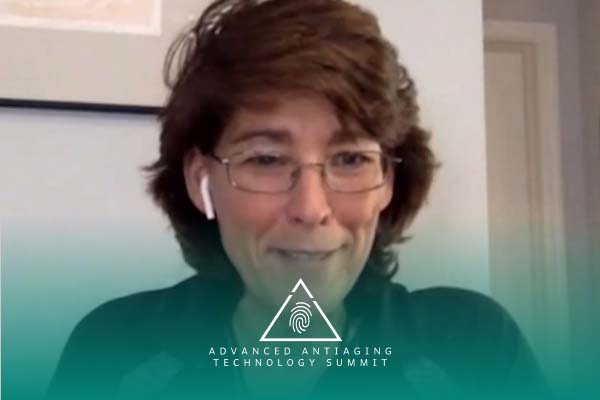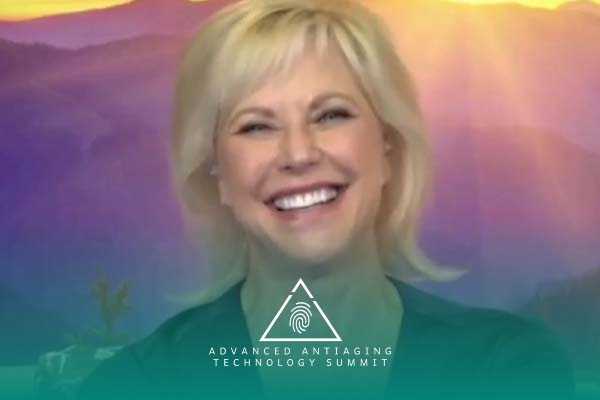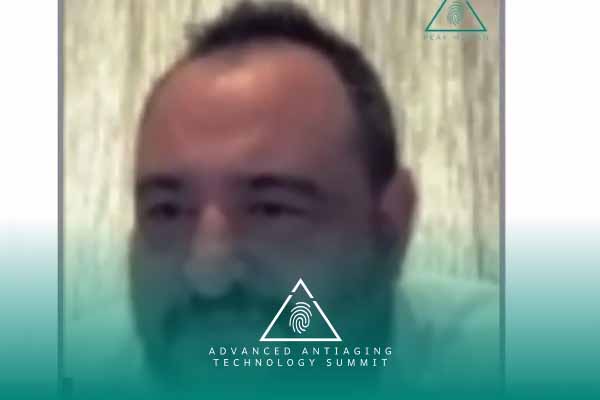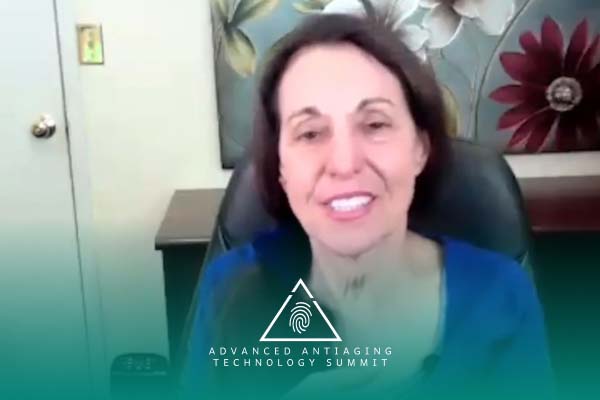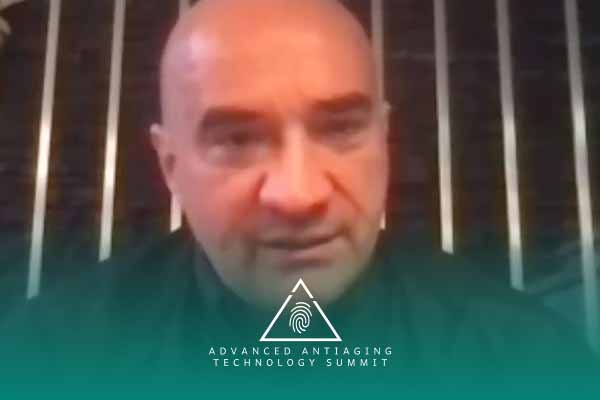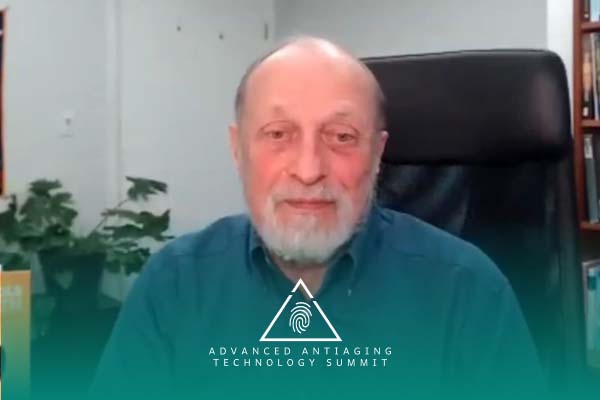Join the discussion below
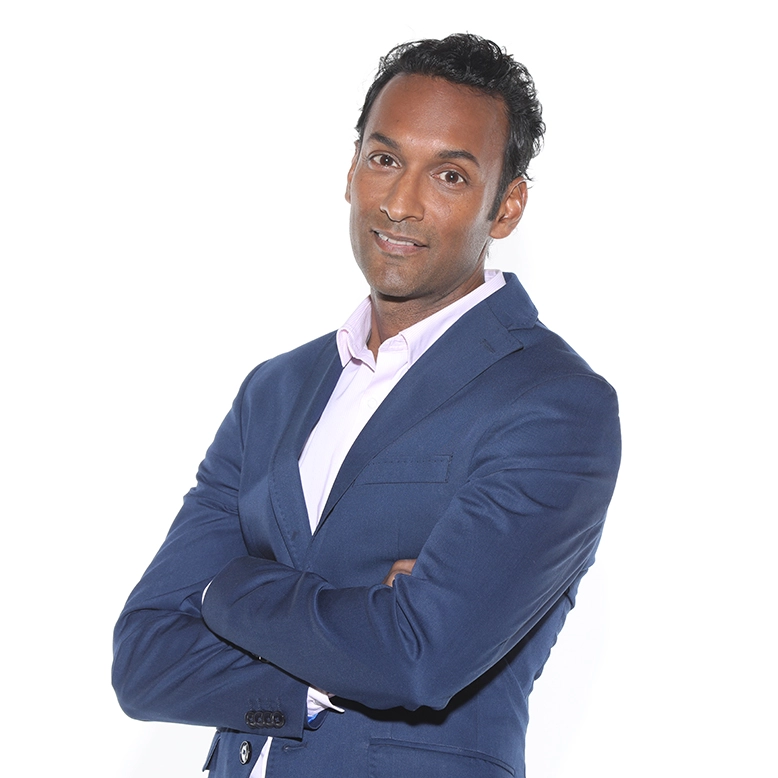
Dr. Goel is a medical physician and founder of Peak Human Labs. His mission is to speak knowledge of the latest cutting edge medical tools and science in order more people to live in a Peak mental, physical and spiritual state. You can learn more about his work at longevity.peakhuman.ca. Read More
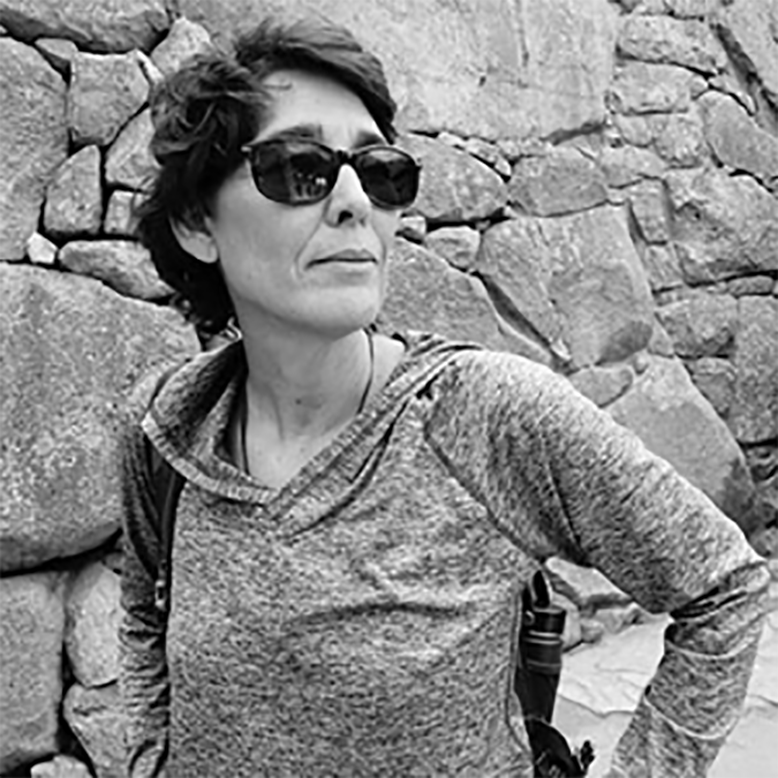
Michelle Toole is the founder of Healthy Holistic Living. She started the website in 2006 to share her exploration of natural and alternative health solutions when mainstream medicine offered only basic symptom relief for a mysterious neurologic condition that within weeks took her from running the New York City Marathon... Read More
Sanjeev Goel, MD, FCFP (PC), CAFCI
Welcome everyone. I’m Dr. Goel. This is the Advanced Antiaging Technology Summit. And today I have Michelle Toole with me and welcome. I’m just gonna read her little bio. Michelle Toole’s the founder of Healthy Holistic Living. She started a website in 2006 to share her exploration of natural and alternative health solutions when mainstream medicine offered only basic symptom relief for a mysterious neurological condition that within weeks took her from running a New York City Marathon to becoming bedridden and giving up her position as executive director of a social services nonprofit in Prescott, Arizona.
Her journey as an information seeker resonated with thousands of readers as she followed a holistic path and experienced profound improvements in her physical, spiritual, and mental wellbeing against an illness that took 20 years to diagnosis as multiple sclerosis. Fast forward to today, and we see that Healthline named Healthy Holistic Living as one of the best holistic health blogs of 2020 and she has over two million passionate followers. Through the years, Michelle has developed a strong network of others applying their talent and expertise along parallel paths to wellness.
She became the co-owner of myKore Essentials, a family of magnesium oil based products after experiencing the beneficial effects of myKore magnesium oil spray for residual MS pain that flared up while she was in Peru to hike Machu Picchu. The driving force behind Michelle’s work continues to be the pursuit of life-changing information and to share it in a way that empowers people to improve their lives. So welcome, welcome again. I’m so excited to hear about the journey. And so I would like to, maybe just want to talk a little bit about that bio. I mean that’s quite a story that you were running this marathon and you had developed these strange symptoms. I mean, I guess MS typically has pretty obvious symptoms. But what was different about your symptoms?
Michelle Toole
Well, I’m not sure if it has obvious symptoms. I think that that would be kind of a classic view of it. And unfortunately when I’ve talked to a lot of people and going through the process, you know, a lot of people had very mild symptoms, first starting out with numbness in different body parts, maybe their fingertips or whatever. And so it wasn’t so classic in that sense. Mine I think, for me, because I was running marathons and I was very kind of involved in my life, probably a lot more stress than somebody should have. At 32, you don’t really think of a lot of kind of like I have to eat this perfect diet.
I was eating what I believed to be healthy at the time for what I was trying to achieve. And actually it happened overnight. And so what happened with me is, well upon reflection it didn’t, but in that moment it did. I was actually out for a training run and the left side of my body went numb and the right side of my body went weak. And then from that point forward, everything just cascaded. Every kind of response the body could have, which now I view as inflammation and understand it better, but an enormous inflammatory response was happening in my body, literally just rolled into extreme allergies, just a cascade of things. And because my body had this kind of full systemic effect, it affected, I think my gut and immune response so acutely that it was confusing for the doctors. Oh, well, you’re having allergies and you know, so.
Sanjeev Goel, MD, FCFP (PC), CAFCI
Yeah so you had, did you have multiple inflammatory conditions at the same time? Is that what you’re saying or was it MS?
Michelle Toole
Well I think it was MS, but I think my body was having an acute reaction. Because when you’re out there doing training runs of 20 miles and you’re out there doing, working the hours I was working and under the stress that I was, you think you have the world by the tail. And really I had chipped away at my body to the point that when I think I was having what I would call an MS flare for the first time, the immune system was already depleted. You know, so many of my systems had been already depleted by my activities and my lifestyle that I didn’t recognize that then I had that acute response that probably was multi-systems, was probably multiple disorders. But the beautiful thing about what happened for me is I didn’t get a diagnosis right away.
And I appreciate that because I didn’t, at the time I wanted it because the emotional validation and having that kind of authority to be able to help you through the process seemingly at the time was really important, but not being able to find that, put me in a position of not labeling myself, not acquiring diseases, not acquiring understanding, but looking at myself from a whole perspective and looking at myself from an inflammatory perspective. So instead of I’m gonna address this as MS or I’m gonna address this as allergies or I’m gonna address this as a gut issue, I addressed my whole being. And that naturally shifted me into the state of being able to decrease that inflammation and be able to start making lifestyle changes that had a dramatic effect. And so waiting those 18 years was actually okay in the long run. I think some of the hardship that each of us face when you have an issue is acquiring those labels and then dialoguing about it. It inherently limits in a lot of ways the protocol you’re gonna implement.
Sanjeev Goel, MD, FCFP (PC), CAFCI
Yeah, so Michelle, maybe for the viewers and our listeners, do you mind telling us about what’s your thought process about how does inflammation affect health? I look at it maybe as the underlying of so many different conditions. I’d love for you to share like how do you view inflammation?
Michelle Toole
Well and I think most people know and are familiar with acute inflammation, which our body’s initial response to injury or infection or illness, which is necessary for the healing process. And so that symptomatically can come out as heat, redness, pain, flu-like symptoms or whatever. And that’s an important aspect of how we kind of heal ourselves. But then we have chronic inflammation and we have inflammatory response that are cascades which affect us, you might have psoriasis it’s expressed so many different ways. It could be allergies, auto-immune disease, cardiovascular disease, diabetes. And it is this chronic inflammation that so many people, it’s actually I think one year I think it was called the silent killer.
You know it is really I think one of the key things that are impacting our health on a global level that we’re not recognizing and it’s driven by lifestyle, food consumption and stress. I mean I really think that’s acute right now for people and we don’t really recognize it. I mean a lot of people do recognize the response on the body, but they don’t really correlate it with then developing disease. And they don’t, okay, my diabetes has something to do with or my auto-immune disease has something to do with it. A lot of times we look for a genetic cause or we look for classic paths and reasons of understanding why we acquired that disease. And a lot of it does have to do with lifestyle choices. For me, addressing that inflammation, you know, I didn’t see the acute response until after that trigger point. And that’s where I think I went into an acute inflammatory response and then it didn’t subside. it just perpetuated.
So I didn’t have the subtle symptoms other than maybe, things that you would ignore as a young adult. You just would never associate it. So yeah, it’s an important function in our body and it’s part of healing to recognize it, but it’s also, if it’s chronic, you could be walking around without having any clue that you’re inflamed. And the next thing you know you go to the doctor and you’re dealing with or your body’s expressing psoriasis or whatever it does. And you’re wondering why this is happening. So I think this is something that has to be addressed on a societal level much more than we do and should be integrated I think more into our medical kind of system.
Sanjeev Goel, MD, FCFP (PC), CAFCI
Do you think that one could have low grade types of inflammation? I mean they may not have some full blown symptoms. Do you think everyone has a certain amount or what?
Michelle Toole
In today’s modern world, if you’re not proactively investing in stress reduction, we’re probably, I mean it’s that constant sense that you’re under attack, whether it’s emotional, physical, spiritual, if you’re feeling that. And in today’s climate, I would suggest that everybody is unless they’re proactively looking for alternative ways to maneuver around that. For me, one of the key ways that I address chronic inflammation, whether it’s a physical need with pain or whether it’s a need emotionally that I’m dealing with a high stress situation, you know, one of the the techniques that I developed a long time ago, which was kind of a three-step.
You know the first one is stopped resisting because any level of resistance, if I’m in pain, which I’ve dealt with tremendous amounts of pain, the more that I addressed it, the more I focused on it, the more I resisted that moment, the louder that pain got. And that’s something that goes from a physical experience to an emotional experience. I don’t want to deal with this, I don’t want to feel this, that level of resistance. And then just accepting the circumstance we’re in. This is just the current reality in front of me. And doing those two things allow for things to dissipate. And it’s a hard thing to express to people because when you have a disease, a lot of times when you say stop resisting and accept, we’re always trying to fight. We have a belief, fight cancer, fight this, fight that, and that puts more stress on your body. It puts more stress on your-
Sanjeev Goel, MD, FCFP (PC), CAFCI
Can one heal better? Like do you think one can heal faster by resisting, I mean to stop resisting?
Michelle Toole
I absolutely do think. Because you have to put your body in a state that it can heal. Our natural state is a healthy body and I need to do everything to optimize that so my body can do what it naturally does. And if I resist that, the body can’t push through that ’cause mentally I’m reinforcing that, physically I’m reinforcing that and I need to give it that space to heal. And that includes not only that, but foods, removing toxins, all those things that we need to do physically to reduce that inflammation.
But if you bring to the table that, we move through resistance when we accept where we are, then we can create. We can create a different space for our body, for ourselves to really begin healing. It doesn’t mean you’re gonna heal overnight. It means that you’re now in a space that you can. It may take you six months, may take you a year, but you’ve put yourself in that setting. So I think it’s actually one of the number one things you can do for yourself.
Sanjeev Goel, MD, FCFP (PC), CAFCI
You know, sometimes, you know in the hospital taking care of patients and a family will tell us, don’t tell the diagnosis, don’t say it because they’re gonna give up. They’re gonna give up and accept it and then they won’t be fighting. Like we always kind of have this thing about fighting, we’re fighting cancer. You know, the person has to give up and they’re done. But I guess you’re saying, yours is a completely different paradigm.
Michelle Toole
It’s completely different. And let me tell you why. The pain was really it. I would lay in bed, and the pain was so excruciating, like I really, I’m pretty tough, that doesn’t bother me generally, this really took me to a point that I was almost hysterical and I, it was very, very hard to move maneuver through that and function. And so I can’t recall the book I read, but it was something in regards to how pain signals come from the brain to the body and that literally, you know, we talked about phantom pain and that the body’s sending the signal and you can interrupt that signal and it doesn’t have to, you can make it grow or you can make it dissipate.
It doesn’t mean you’re gonna resolve it completely. But kind of through that process, I understood that if I kind of sit beside the pain, I don’t talk to it and I try to interrupt it because I spent a lot of time saying, “I can’t take this anymore”. And when you’re saying that, your whole body’s locked up. And you and I know when your body’s locked up like that, you’re not releasing, it’s not in a state it can heal. It’s fighting. And it’s not your body fighting, it’s your brain and you’re expressing that. So I’m increasing the stress level, I’m resisting that. Pain has to flow through you. Whether it’s physical or emotional, it has to flow through you. And so for me, when I was able to do that, I literally had a tangible experience of the pain decreasing. And when I got that, I started realizing that that’s an important factor in this whole entire process.
And so it started with something physical, which was good, ’cause I’m more of a linear thinker. And for me, the idea of it being all emotional or something or having an emotional component would be secondary to the idea that it was physical. But when I realized that, that gave me a comprehensive understanding that it’s not relevant whether it’s physical, emotional or spiritual, it’s still tightening my body up, producing cortisol, putting me in a fight or flight state, which you can’t heal in.
Sanjeev Goel, MD, FCFP (PC), CAFCI
I think that’s the importance of dealing with stress with I guess reducing inflammation and strengthening the immune system.
Michelle Toole
Yeah.
Sanjeev Goel, MD, FCFP (PC), CAFCI
So I guess apart from that, tell us the journey with finding the solution, you know, with supplements or other type of treatment modalities that you went on.
Michelle Toole
Well sure. I would say I went on every treatment modality known to man, which is not unusual for somebody who walks away from traditional medicine and kind of goes through their own experience. But the simplest way of approaching was with food. And it was common sense. Now this was in the late ’90s prior to all the information on the internet about certain protocols, which today is brilliant. I mean, we have so many wonderful protocols when it comes to diet that have science behind it, that will do amazing things, specifically for autoimmune disease, but all of ’em.
I just knew more vegetables, massive amounts to the point that you can’t take anymore, you know, quality food and meats. For me, I always had a belief system for what I was dealing with, for mitochondria health, that that was a key player. I’m sure there are a lot of other healing modalities that might suggest different diets and I would say, different diseases, you want to go different paths, but for me, that’s where I went. And I stripped all the toxins out of my life. I went to the extreme because I didn’t have any information to tell me differently. So I thought if I just get rid of everything, you know, gluten, dairy, everything, then I can do one at a time and start to know-
Sanjeev Goel, MD, FCFP (PC), CAFCI
Like a low on the food chain, like a plant-based diet. Are you talking about organic? Just so our viewers can understand.
Michelle Toole
Sure. At the time, we couldn’t focus purely on organic. I went with what I had, but it is primarily plant plant-based, but with meats, protein. But the majority is fruits and vegetables no doubt. And you know I knew growing up, the richer, the darker the color, the more nutrients you’re gonna get out of it. So really it was such a simple approach and it evolved into organic. It evolved into kind of more protocols as the information came out on the internet, juicing and things like that. But people would not have to go as far as I went because I didn’t know enough then. I just removed it all. And I removed all personal care products. I removed everything that was not organic or pure.
We just moved to vinegar basically for everything, all cleaning, all everything. And it just, it just gave me one, a sense of control, which was important, ’cause my entire world was out of control. I couldn’t work. I could barely walk. So that was important that I was doing something about it. And too, it gave me a level playing field that I could start to see how I needed to form a relationship with my body and see how each food impacted me. Because you’re already so hyper sensitive, it’s a perfect environment ’cause you’re gonna feel what you do immediately because you’re in that inflammatory state. So it allowed me to pick and choose and understand what I needed to create the perfect scenario to start reversing what happened and healing.
Sanjeev Goel, MD, FCFP (PC), CAFCI
And then with regard to any supplements, supplements or modalities?
Michelle Toole
One of the things that I think were key is just understanding the basics, the fundamentals. So magnesium, we’re incredibly deficient in that as a society. I didn’t need to find out if I was deficient, it’s a given. You know, vitamin D, it’s a given, those kinds of things, optimizing with your basics were really, really important. Again, at the time, we didn’t have a lot of companies out that were putting out the products that really optimized those. So I went with what I could get. I knew that I needed to go out in the sun more. Basic living was the protocol. But I have to say, depending on my symptoms, you know, I would do vitamin C if things were triggering one way, probiotics, the obvious for gut health. So you’re really talking about the basic protocol to build up your immune system and give your body the minerals and vitamins it needs to start doing that. Then, you want to get the rest from your food and that’s where-
Sanjeev Goel, MD, FCFP (PC), CAFCI
Talk about magnesium. I know that you have now, you started myKore Essentials, which I believe offers magnesium supplements with CBD and so on. But I guess, I mean most people, I can go to get my blood test done at the doctor and have my magnesium level and it’ll fall within the range, like 2.7 to 1.1. But so, I mean are we saying that that range is not correct or that’s not a true measure of your magnesium level?
Michelle Toole
In my opinion, no. In my opinion, no, and I can tell you why. If your body’s in a state of disease, something’s off. And when you are in a state of disease or when you’re in a state of decline with aging, you are becoming deficient regardless. So there may be a range with blood tests from your doctors and I think that’s a fantastic starting point. But when you’re dealing with things that are not gonna be harmful by taking, you’re giving your body a lot of times the food, we can look today, look the minerals from the soil aren’t there. We’re not getting the magnesium that we need or because of stress, we’re immediately depleting them. So maybe you go to the doctor and you’re having a really good week and everything looks great, but you still don’t feel well. You’re still feeling like your body’s breaking down.
You’re in you’re 50s or you’re in your 60s and you shouldn’t feel like you’re 75 and you shouldn’t feel like you’re in your 50’s by our societal definition. You should feel vibrant and young and excited and full of energy. And what we’re seeing is a lack of energy, we’re seeing pain, we’re seeing discomfort, we’re seeing sleep issues. These are all indicative of chronic inflammation. They’re indicative of being depleted of your basic vitamins and nutrients. And the best thing you can do is go out, get some magnesium, get your vitamin D, get your sun every day, do your probiotics, reduce your stress. You know you can shift and feel amazing from 50, 60, 70, and there’s no reason why we can’t.
Sanjeev Goel, MD, FCFP (PC), CAFCI
But do you think that every person could benefit from magnesium supplementation? Like is this, now let’s say if you don’t have any real symptoms, like you want to prevent disease, and maybe you have some small inflammation you don’t know about it. Could magnesium be helpful? Like I’m just wondering. ‘Cause most people don’t take a magnesium supplement. They might be in their multi, but they’re not taking a separate magnesium supplement.
Michelle Toole
Well, we like topical magnesium and there’s a lot of reasons why but for inflammation, I think it’s wonderful on a regular basis. But also let’s say you have the person we know the importance of quality of sleep. We know more scientifically than we’ve ever known in regards to how that impacts either the breaking down of the body, disease and healing process. With magnesium, you put that on before you go to bed, you’re gonna sleep like a baby. So you’ve just knocked out one of the huge issues that we’re having in our society that’s weighing our health down and people aren’t realizing it until it’s too late. Those eight hours, that overnight sleep is critical to energy, it’s critical to rebuilding the body, it’s critical to everything. So I think magnesium is essential. I won’t throw away vitamin D either. I’m right up there, big champion of that.
Sanjeev Goel, MD, FCFP (PC), CAFCI
You know I have to give vitamin D to all my patients. But so the topical, let’s talk about that ’cause I’ve just started to use your product as well these days. And so I was curious like what’s the absorption like? How do we know it’s absorbing through into the body? Has there studies been done to look at this?
Michelle Toole
There’s not a lot of studies and there’s not a lot of money in the studies. We personally believe that that is the best absorption level. It’s not only going to address a specific area of inflammation that you have. Lots of people with arthritis use it. So they spray it on their hands and immediately. My mom wakes up in the morning, puts it on, 15 minutes later, she’s moving her hands. It is incredibly powerful, magnesium in and of itself. Mixed with other things, it can also be wonderful. And that’s what we do. We really maximize that. And high quality magnesium’s super important. But I think for sleep, you know, it comes in. I remember having a conversation with Dr. Goodwin, he’s at Columbia Hospital and he’s a cardiovascular doctor. And one of his overriding things was the first thing he does with his patients is give the magnesium. Because he found over the years that that resolved, I don’t want to give you the number, but it was a very high percentage that he gave me, ’cause I can’t recall exactly what he said, that it resolved the cardiac issues.
Sanjeev Goel, MD, FCFP (PC), CAFCI
Heart health, we are giving it. I have seen it being given a lot for heart health, there’s no question.
Michelle Toole
Right. Well yeah it has been and here’s the thing, you don’t know when you have a heart issue. So taking magnesium, the only side effect, and here’s the benefit of topical, when you take a supplement, first of all, there’s a lot of different types of magnesium out there. You want to get the right one. But it does cause stomach sensitivity and it can cause loose bowels. So I avoid all of that just simply by using a topical. I don’t want to burden my body anymore than I have already done with the experiences I’ve gone through. So this just eliminates the possibility of having any type of bowel.
Sanjeev Goel, MD, FCFP (PC), CAFCI
You couldn’t take too much topically?
Michelle Toole
Not topically, but you can through ingestion. So, and like I said, the greatest thing is reduction in anxiety, depression, sleep. You know, if you want to bring, there are studies out there, but I’m not so sure that they’re not interrelated in the sense of like if you sleep better, you’re gonna have less depression, you’re gonna have less anxiety. I don’t care cart, horse, it really doesn’t matter. This is just a real simple path that somebody can do to enhance their health and kind of put some of those building blocks back in and then start making larger choices ’cause those are the easy things they can do, you know?
Sanjeev Goel, MD, FCFP (PC), CAFCI
Right. And so you were just mentioning types of, just maybe for the viewers like to understand what are the types of magnesium out there and what should they be, what’s important when they’re looking at the types of magnesium?
Michelle Toole
Well, we’ve put, I believe the e-book is available, which is gonna through. We have that available on the summit. I recommend that they download it because I’m gonna go through it and it’s gonna be a lot and you’re gonna miss it. It’s gonna go through and give you, not only the varieties that you have and the ones that are optimal for whether you’re supplementing or if you’re using a topical, but it also talks about the foods, the importance of it, why we’re depleted, and how to maintain that and what symptoms you might be experiencing and what kind of relief you can expect. So I would say that’s the best resource for the listeners.
Sanjeev Goel, MD, FCFP (PC), CAFCI
Okay so I’ll make sure, yeah, we point that out the end of the show as well. And then you mentioned the co-factors, like I mean the other things that you’re mixing with magnesium. What goes well? I know that myKore also, you have other things with your magnesium.
Michelle Toole
Yeah, I don’t know how much time we have but the driving force behind the formulation for the company, it started with a magnesium without any other, any other combination of elements in it. And the formulator developed it for his wife who has fibromyalgia and they couldn’t find anything to provide any kind of relief for her. And he optimized the amount of magnesium, that’s important, and he got magnesium from the Dead Sea so we weren’t dealing with synthetic. And that was a real powerful move for him and his wife. And so this is when we came along and one of my, the other owners of the company. and they came to me, and I deal with residual pain from MS, but I like to do big things. And so I was heading to Peru to climb a couple mountains and they got together and came up with a formulation that included CBD hemp, it included , that was the first round.
And then the second round, we’re bringing in NSM, we’re bringing in other key players that are, arnica, you’re all natural formulations. But the beautiful thing is the synergistic effect, when you nail that in a product, you really can enhance each of those ingredients you bring to the table. And Jim, who’s our formula, he’s just brilliant. And they sent me off to Peru with these bottles and I climbed Machu Picchu and it was, I went back to the hotel, “There is no way I’m climbing that second mountain. I’m gonna not be able to move the next day.” ‘Cause you know when you’re already locked up and sore as you’re climbing down, it’s over. So I got back to the hotel, I soaked in the tub for an hour and I covered my body head to toe in this.
Now admittedly, I probably used more than the average person, but the guys didn’t tell me what was in it and of course I have neurological pain, so that’s residual, that’s there. And I woke up the next morning pain free. And I tell people this and they’re like, “No.” Yes. It is the right mixture of magnesium to decrease the inflammation with the combination of pain relievers that allowed for that. And then I went and climbed Rainbow Mountain, which is this, it’s over 17,000 feet and that, I did it. Now, I was slow, okay, and I went with really young people and I was way behind, but that is not the point.
The point is I could do it. And it was a tool in my arsenal to be able to function at the level that I desire. And I desire to do these things. And for the average person, they would have consequences. For me, they’re larger consequences. And so the team developed a product to address it so it’s not just dealing with the issues of an athlete or somebody who’s out there pushing themselves. It’s for somebody with arthritis. It’s for somebody that has neurological issues that can address that at the same time we’re addressing the issue of magnesium deficiency, which is critical in the overall health and wellbeing process, I think.
Sanjeev Goel, MD, FCFP (PC), CAFCI
Okay. And so has the, I mean it sounds like your MS has not really progressed. It sounds like its, can you maybe just talk about that? I mean most people have like it’s a kind of a permanent impairment, like they don’t necessarily have reversal. I’m getting a sense of you’ve had some reversal.
Michelle Toole
Well, yes and no. I mean, I have, my cats getting ready to jump up here. I have residual issues. I’ll have some twitching, I have pain, I have different things that come up. You know, one of the things I’ve learned along the way, you can feel when things are starting to happen. The relationship I have with my body is a relationship and I know when I’ve triggered something and when things are coming on and I know when to calm down. I don’t believe you, yeah, I do believe, but I have not found that, okay, the reversal or total healing of it, but I believe you can go into remission and I believe that then you need to maintain a relationship with your body. But that would be with anything, any disease or the prevention of disease.
You have to make sure you’re in tune enough that you are watching what’s happening with your body. I can tell when a flare is coming on if I’ve done something that maybe puts us in a position I’m gonna start having more symptoms. And I just simply do something about it. I improve my diet immediately. I reduce my stress to zero. And then I start optimizing again with supplements on a pretty serious level of saying, now I need to make sure I take, this is the amount every day, you know, and check in with all my systems so.
Sanjeev Goel, MD, FCFP (PC), CAFCI
Okay, perfect. That was helpful. And so, is there anything else on the, do you wanna talk about the CBD for a bit? Do you want to talk about the CBD?
Michelle Toole
Well I can. I think the CBD, the information is finally out in the mainstream about CBD. It’s wonderful. The studies, we have a ton of studies to show the value. We have a natural system that produces cannabinoids and it relates to that and it’s a powerful tool. But in and of itself, I don’t think it is the only answer. I am not an advocate of single thinking or single solutions. And I find, unfortunately, a lot of protocols out there or supplements or people, this is the answer, this is the path. And I really don’t agree with that. CBD, and whether it’s THC or if it’s hemp-based, it is a miracle, it’s wonderful, but I do not believe it is in fact the answer to disease in and of itself and I don’t really like to present it that way. It’s a part of a protocol or a synergistic approach to healing and your health and maximizing everything and optimizing your wellbeing.
Sanjeev Goel, MD, FCFP (PC), CAFCI
Yeah, no, I think that’s such a key point that you brought up is that it’s a multi-pronged effect, strategies to kind of reduce inflammation is what you believe in. Some of it’s psychological, some of it is supplement, some of it’s lifestyle, some of its diet. And I think that’s what your whole story’s about. And yeah, that’s very, very good for our listeners to hear that. Is there anything you want to end off with, to tell our viewer about?
Michelle Toole
Well I just think that whether you’re coming to us to listen, to enhance your life, improve your quality of life because you’re aging, prevent disease or actively in disease, I think the solutions are all the same. And I think that, you know, if we can make sure that we form that relationship with our body, listen to it and understand that the strategies need to be multi-pronged and believe that quality of life is a natural state, having an incredibly high, energetic, enjoyable quality life is our natural state. And that disease and decline are not. And that mindset and shifting that and then embracing information and integrating it into your life is incredibly powerful.
And whether, when I was bed-ridden and couldn’t move and people would say do exercise or this, it’s very hard to get your head wrapped around when you have inherent limitations or perceived limitations. But that meant whether I was stretching, whatever I could do, wherever I was, improve my life. And so I would love for everybody to walk away from the summit, whether you’re getting something from me or anybody else that you’re bringing to the table with a handful of things that they can implement in their lives. And I guarantee that they will see, you know, improvement and that’s just focus on that, allow that to motivate you and keep you moving forward. And that’s it.
Sanjeev Goel, MD, FCFP (PC), CAFCI
And that’s so awesome because I think that’s exactly why we’re doing the summit together.
Michelle Toole
Thank you for having me.
Sanjeev Goel, MD, FCFP (PC), CAFCI
All right, okay, we’ll talk soon.
Michelle Toole
All right take care.
Sanjeev Goel, MD, FCFP (PC), CAFCI
Take care, bye, bye.
Downloads

